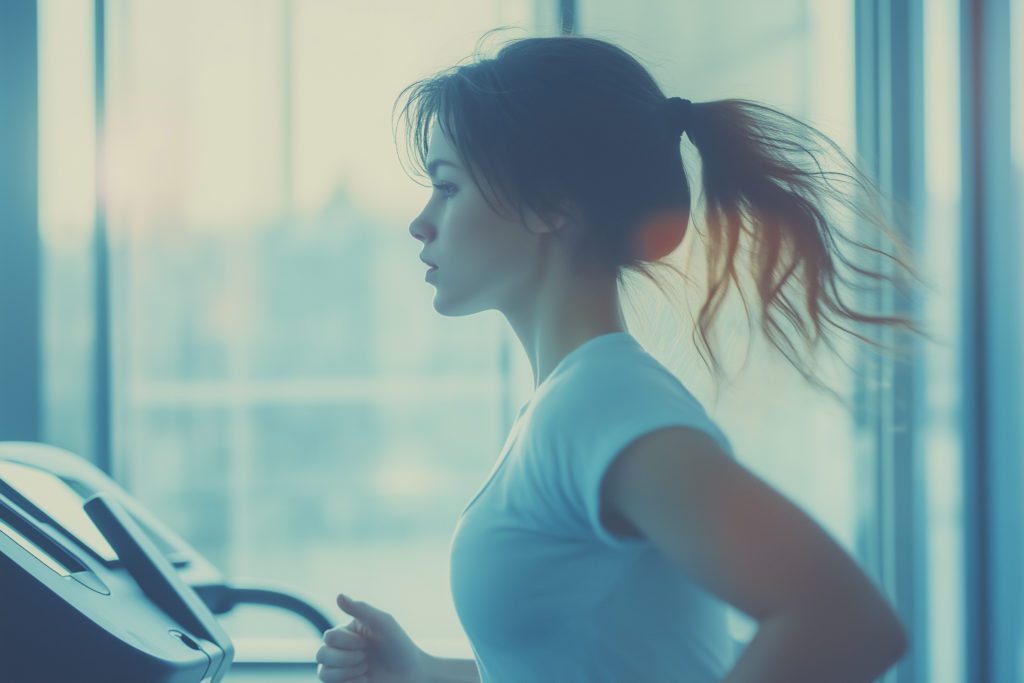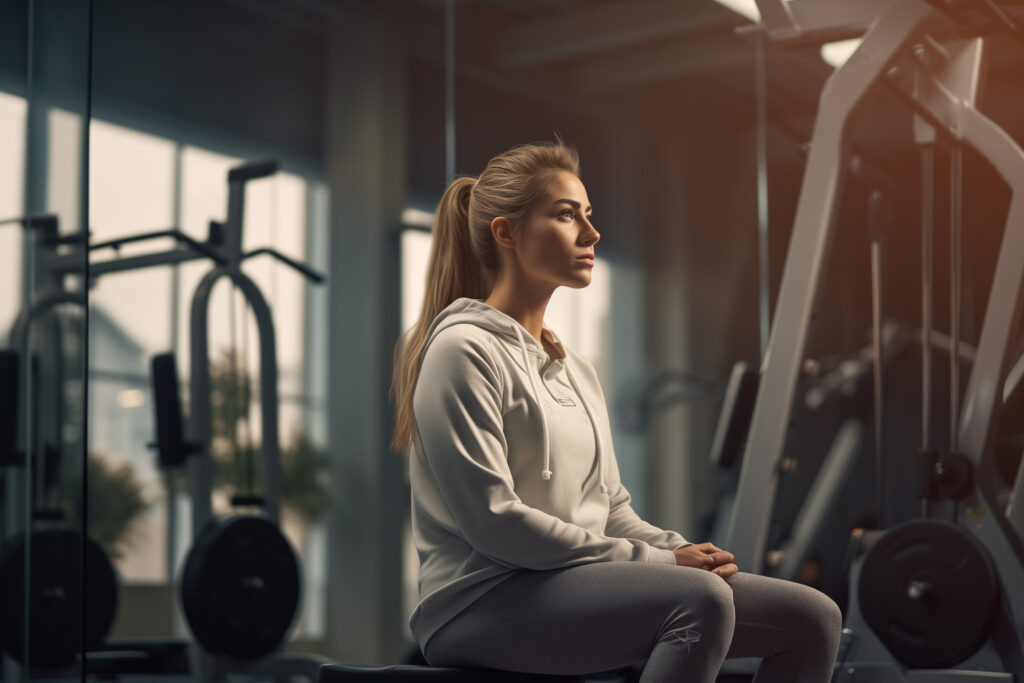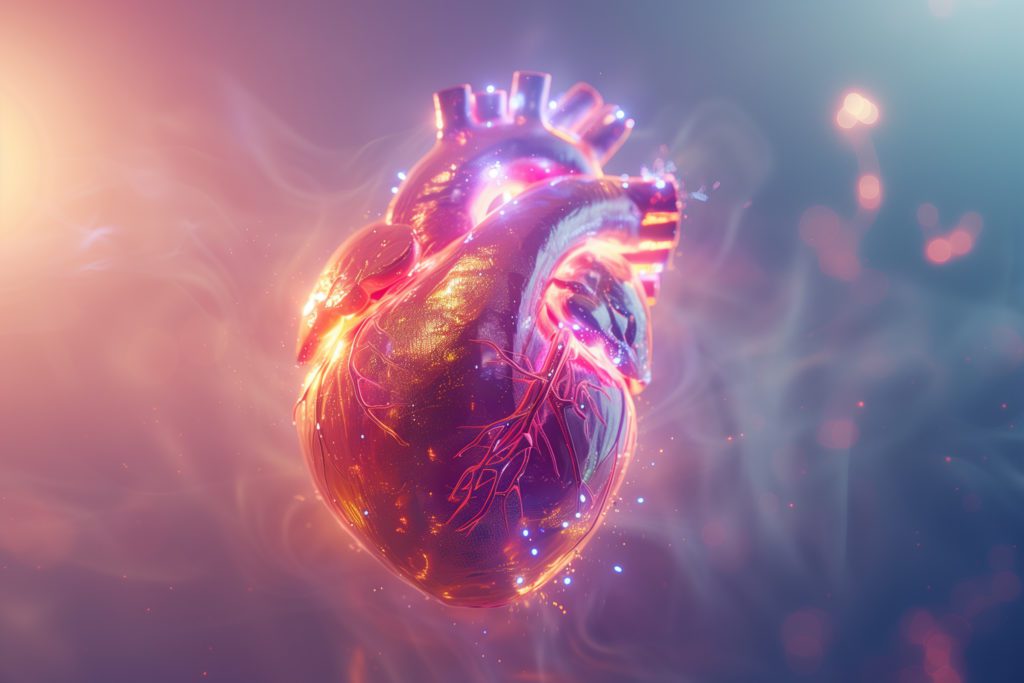
Heart Rate Recovery: Assessing Cardiovascular Fitness Through Sleep Metrics
Heart rate recovery quantitatively gauges how well your heart recovers following a workout. Explore how your sleep is connected to this fitness metric.

Your heart’s job is to hold a steady beat in your chest, yet with cardiovascular diseases being the greatest health risk worldwide, the health of your heart is all the more important to preserve. One way to gauge your heart health is through your heart rate recovery, and your sleep may provide insights into this metric of cardiovascular fitness.
During sleep, your heart rate undergoes changes in beating frequency, emphasizing the connection between sleep and your heart. Additionally, it has been revealed that different metrics of sleep can predict cardiovascular health, meaning improvements in them may also improve your cardiovascular fitness.
What is Heart Rate Recovery?
Heart rate recovery (HRR) is how quickly the heart rate returns to normal after a workout. It is determined using your heart rate at the time you finish your workout and then again one minute later.
To find your HRR, you simply subtract your number of heartbeats for one minute immediately after your workout from your heartbeats (for one minute) one minute after your workout. For example, if your heartbeat after your workout is 125 beats per minute, and your heart rate one minute later is 110 bpm, your recovery heart rate is 15 bpm.
As for the ideal HRR, there are many factors at hand, but one study found that the average HRR was 15 bpm, while another study on adult elite athletes found the average HRR to be 29 beats per minute. Larger HRRs are preferred as they indicate greater cardiovascular fitness. However, a healthcare professional can help you determine which HRR target zone you should aim for.
The Importance of Heart Rate Recovery
HRR is a measure of your physical fitness and can also be used to indicate your heart health. It is different from your resting heart rate, which is your heart rate when you haven’t done any physical activity, or your target heart rate, which is what you aim to raise your heart rate to during exercise. Generally, the more in shape you are and the greater your physical fitness level, the faster you will recover following exercise.
HRR is an important measure because it helps you better understand how your heart handles stress. Exercise is a way to intentionally add stress to the body, and it can gauge how well your body handles stress from everyday life events, such as a new job or a presentation. Additionally, the stress that your body endures during exercise can help you maintain healthy lungs, muscles, and heart.
If your heart doesn’t recover very well after exercising, it may be a sign of poor fitness and potential health problems, with a study finding that a low HRR is associated with a greater risk of cardiovascular events (e.g., heart attack, stroke, cardiovascular disease) and also increases the risk of death from any cause, with a 10 bpm lower HRR seeing a 13% and 9% jump in these risks, respectively.
Heart Rate and Sleep
Your heart rate varies during the night from your resting heart rate during the day, as well as during the different sleep stages throughout the night. Your heart rate begins to slow down during the first few stages of sleep when you’re in light sleep. It reaches its slowest rate during deep sleep, and then picks up speed to one similar to your waking heart rate during rapid eye movement (REM) sleep.
Adverse cardiovascular events most often occur in the morning hours, with a nearly 40% higher incidence of sudden cardiac death, acute myocardial infarction, ventricular fibrillation, atrioventricular block, ischemic events, and ventricular tachycardia between 6 a.m. and 12 p.m. compared to the risk during the rest of the day.
Furthermore, other studies have observed an uptick in sudden cardiac death, myocardial infarctions, and implanted cardioverter-defibrillators at both the beginning and end of the night.
How our heart rate varies during the night can provide some insight into the timing of these adverse events.
During the NREM stages of sleep, your cardiovascular system is stable, and the modulation of your parasympathetic system is stronger. However, during REM sleep, the cardiovascular system is unstable and more susceptible to the surges of sympathetic activity (“fight-or-flight” responses). The fact that we are typically in REM sleep in the morning hours—since REM sleep is the last sleep stage—may explain the increased risk of cardiac events in the morning hours. Essentially, those who are already susceptible to cardiac concerns may be more greatly impacted by the higher heart rate seen during REM sleep.
Additionally, sleep disruption through sleep disorders such as periodic limb movement, sleep-disordered breathing, insomnia, and nocturia has been associated with cardiovascular diseases. Thus, measuring metrics for these conditions can then help to gauge someone’s risk of cardiovascular concerns.
What Can Increase Your Heart Rate During Sleep?
Besides REM sleep, your heart rate should be lower while you’re sleeping compared to when you’re awake. However, some situations may cause your heart rate to increase during sleep, such as:
Using Sleep as a Metric of Heart Health
While HRR is typically calculated during the day, the Columbia University Mailman School of Public Health proposed that sleep be included as an eighth metric of cardiovascular health, with the American Heart Association’s original Life’s Simple 7 including:
- Stop Smoking
- Get Active
- Eat Better
- Manage Blood Pressure
- Lose Weight
- Control Cholesterol
- Reduce Blood Sugar
With the addition of ‘Get Healthy Sleep,’ it’s now Life’s Essential 8.
The Columbia study evaluated cardiovascular health scores, including the Life’s Simple 7 metrics, along with sleep health measures to determine which sleep parameters are most important for preventing cardiovascular disease (CVD). The sleep metrics that were most predictive of CVD include sleep duration, sleep efficiency, daytime sleepiness, sleep regularity, and sleep disorders.
Importantly, even a cardiovascular health (CVH) score that only included sleep duration could predict CVD incidence, showing how important this one metric is to your heart health. Additionally, CVH scores that incorporate multiple elements of sleep health were significantly associated with incident CVD.
With sleep metrics weighing in on the health of your heart, they can also affect how well your heart rate recovers following a workout. One study found that HRR following just one minute of exercise stress testing was affected by sleep deprivation, with the subjects achieving a significantly lower level of maximum HR. This study shows that those who are sleep-deprived experience a slower heart rate when exercising, which means their heart is not able to keep up with the demands as well.
Yet another study found that not only was HRR lower in those who are sleep deprived, but exercise capacity was lower, and peak systolic blood pressure was higher.
Combined, this data shows the effect of poor sleep on exercise capability and cardiovascular health.
How To Sleep for Your Heart’s Health
Based on the findings of the Columbia study regarding which sleep metrics are most indicative of CVD, we can see the sleep habits that can support your cardiovascular fitness. These include:
- Getting 7-9 hours of sleep each night
- Sleeping during the same hours each night
- Visiting a practitioner if you suspect a sleep disorder
With the influence of your sleep on your heart health, getting enough good quality sleep each night should be a priority for athletes or anyone looking to boost their heart health.
FAQ
Which sleep metrics are most important for assessing cardiovascular health?
Key sleep metrics for cardiovascular health include heart rate variability (HRV), resting heart rate (RHR), sleep duration, sleep efficiency, and the proportion of deep and REM sleep. A lower RHR, higher HRV, and sufficient deep sleep indicate better heart function and recovery. Tracking these metrics over time can provide valuable insights into overall cardiovascular fitness.
Can wearable devices accurately measure heart rate recovery (HRR) during sleep?
Wearable devices can monitor heart rate and HRV during sleep, but HRR specifically refers to how quickly the heart rate returns to normal after exercise. Since HRR is an exercise-related metric, it isn't typically measured during sleep. However, wearables can provide valuable data on nocturnal heart rate patterns and HRV.
What factors can negatively impact heart rate recovery?
Factors such as poor sleep quality, high stress levels, lack of physical fitness, dehydration, and certain medical conditions can impair HRR. Addressing these issues through lifestyle changes, stress management, and medical interventions can improve cardiovascular health.
Are there specific sleep disorders that affect heart rate recovery?
Yes, sleep disorders like sleep apnea can disrupt normal heart rate patterns and impair HRR. Conditions that cause frequent awakenings or interruptions in sleep cycles can prevent proper cardiovascular recovery, increasing the risk of heart disease.
Can caffeine or alcohol consumption before bed affect heart rate recovery?
Yes, caffeine stimulates the nervous system, increasing heart rate and reducing HRV, making it harder for the heart to recover during sleep. Alcohol, while initially sedative, disrupts sleep architecture and can cause heart rate fluctuations, negatively impacting HRR.
How do naps affect heart rate recovery and cardiovascular health?
Short naps (20–30 minutes) can reduce stress and improve HRV, supporting cardiovascular recovery. However, long or irregular naps may disrupt nighttime sleep and negatively impact heart rate patterns. When used strategically, naps can enhance overall cardiovascular function.
What is the relationship between body temperature and heart rate recovery during sleep?
A drop in core body temperature is associated with deeper sleep stages, which are crucial for cardiovascular recovery. Sleeping in a cool environment (60–67°F or 16–19°C) can enhance HRV and overall recovery. Poor temperature regulation can lead to restless sleep and reduced HRR.

Written by
Jessica G
Medical writer freelancer who has written hundreds of articles on varying topics. Masters of Engineering degree in Biomedical Engineering.
Download Pillow
Get help
Press & News
Legal
Connect
X (Twitter)
Company
Copyright © Neybox Digital Ltd.



